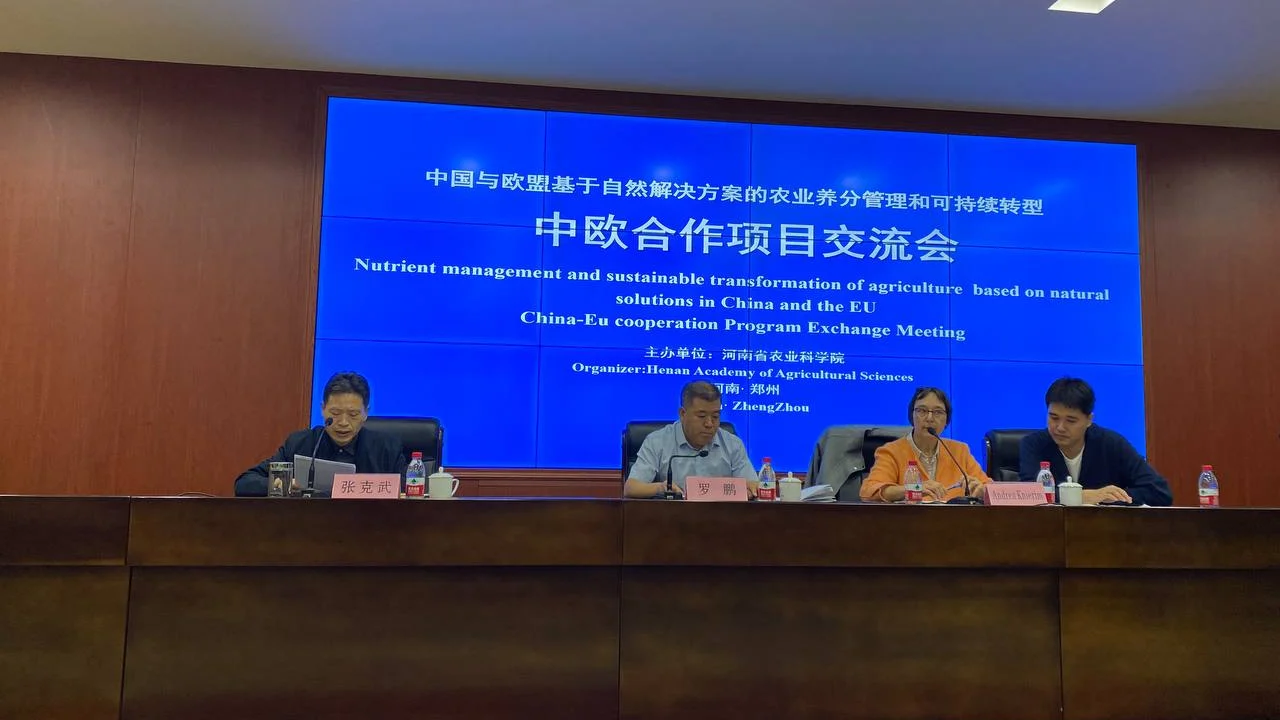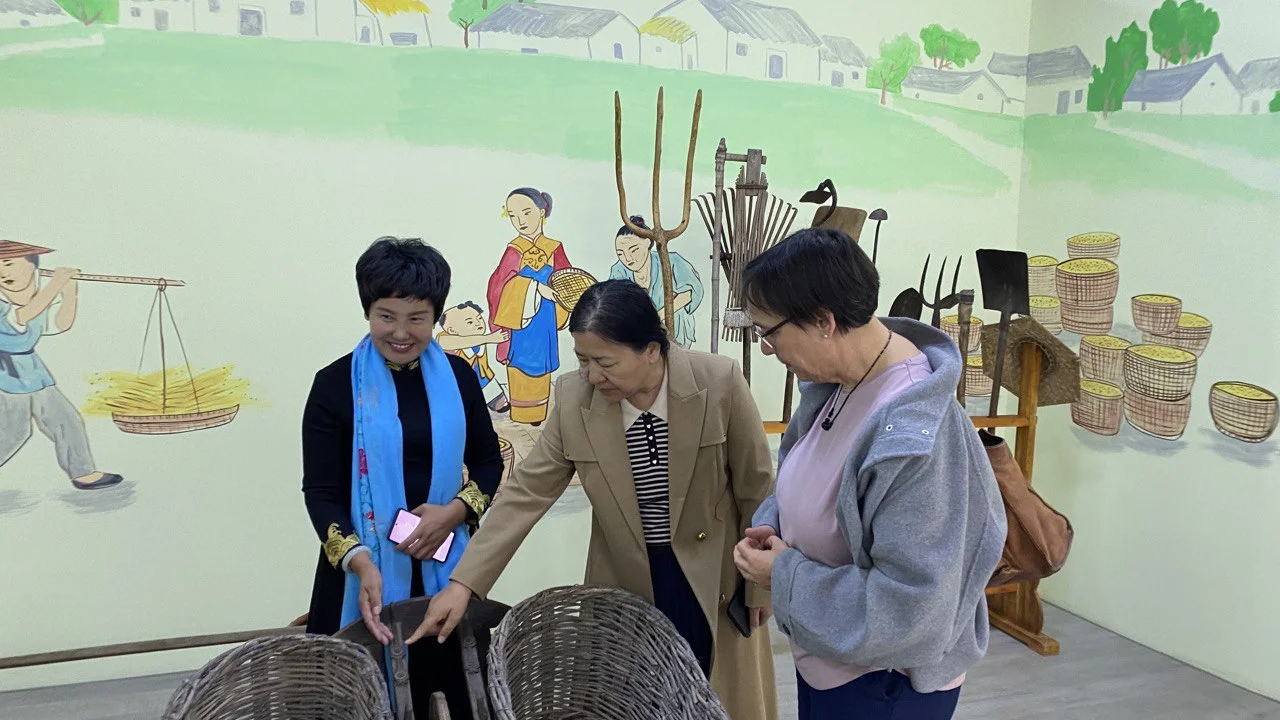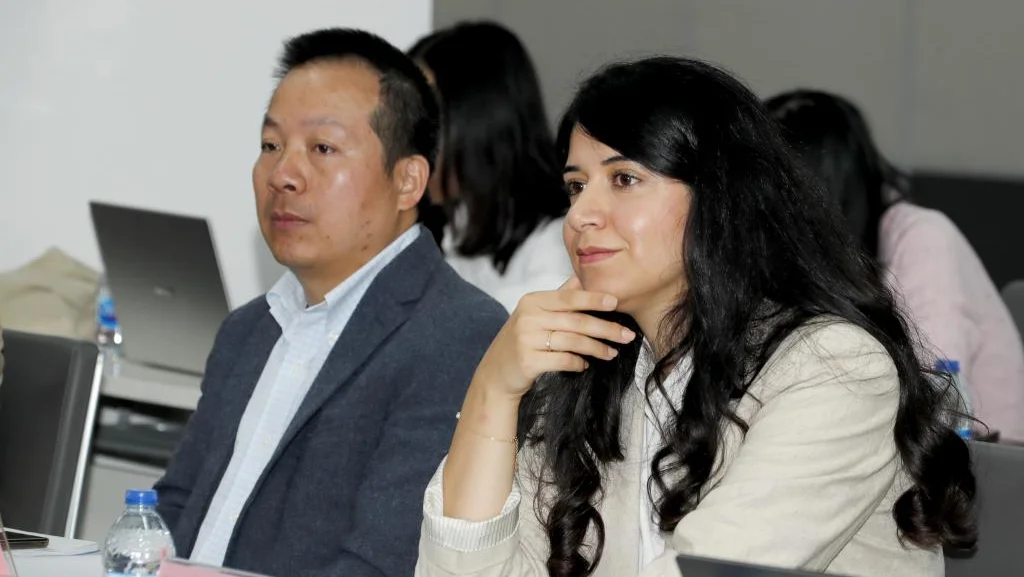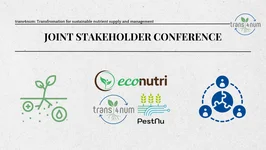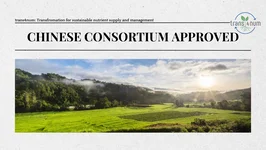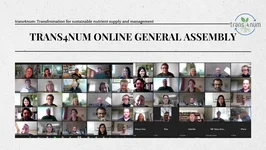| Communication team
Tracing the journey of EU-project coordinators
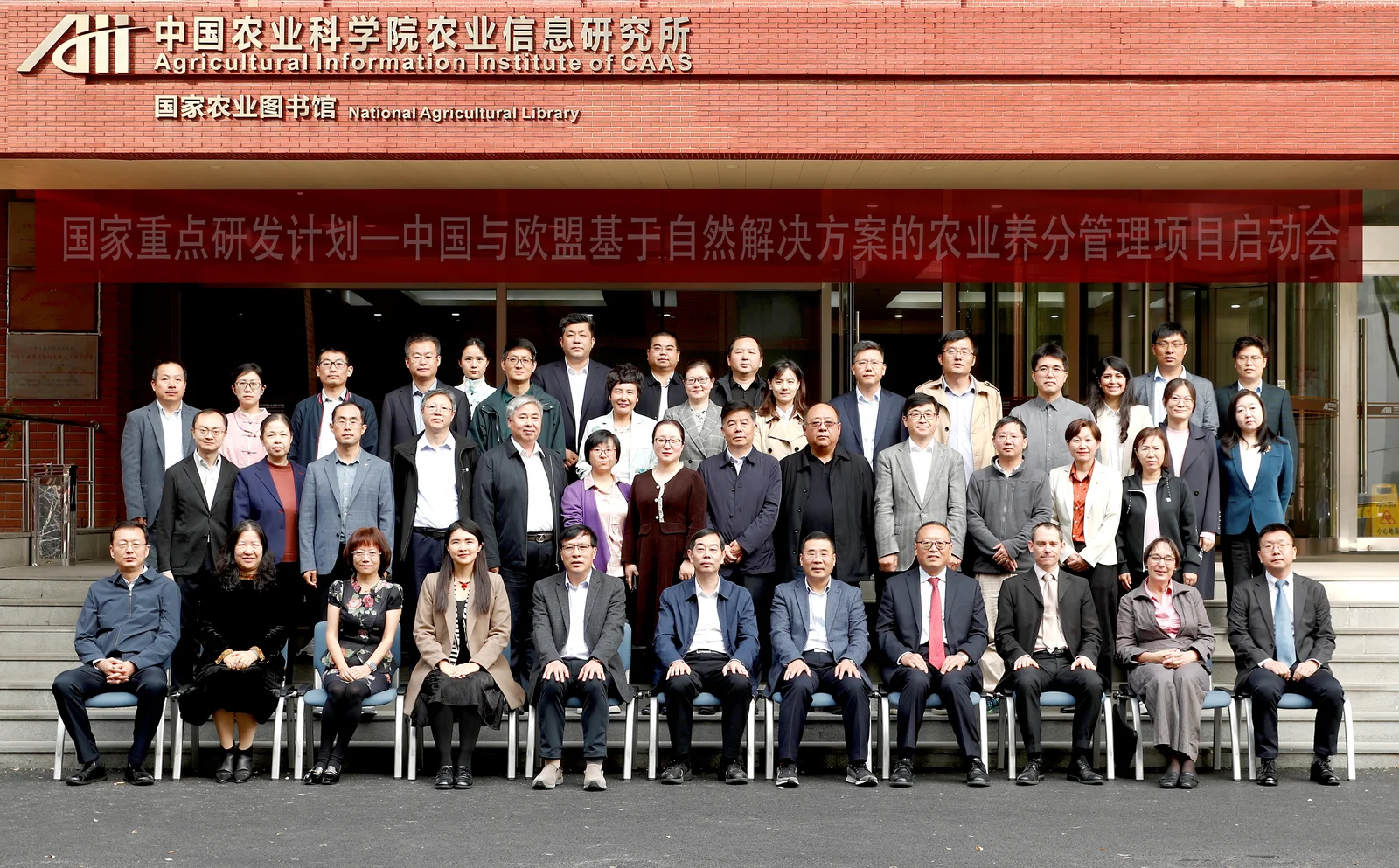
The overall objective of trans4num is to substantiate and broadly promote nature-based solutions (NBS) innovations for sustainable agriculture in Europe and China. To realise its objective, trans4num will use a social-ecological transformation (SET) framework tailored to study 20 NBS farm-level innovations in 7 regions with intensive farming systems: 4 in Europe (Denmark, Hungary, Netherlands, and the United Kingdom) and 3 in China.
In Europe, project activities started in December 2022, while the Chinese consortium project was only approved in June 2023. Project activities will be implemented in an aligned approach, both content-wise and methodologically, which means that the Work Package (WP) structure and task formulation are as similar as possible. Project outputs are expected to contribute to similar objectives and, thus, can be comparatively appreciated and assessed.
Late October, beginning of November 2023 the project coordinator team from the University of Hohenheim set-out to explore and learn more about our Chinese consortium project, directly at grass-roots level.
Prof. Dr. Andrea Knierim, Dr. Qirui Li and Dr. Sara Yasaminshirazi arrived in Beijing on October 29th and the next morning they set off for a two-day trip to Henan province to visit one NBS site.
On 29th October, they visited the demonstration base of “Returning straw to the field with mushroom” in Shangqiu, Henan under the team lead of Ms. Prof. Weili Kong who is conducting research on “Research and Application of Straw Fertilizing Technology for High-value Utilization of Fertilized Soil”.
The objectives of this experiment are: the efficient use of straw residue; reducing fertilizer use; increasing soil fertility and soil micro-organisms; increasing farmers’ profit through mushroom production, and increasing biodiversity by integrating a new crop into the rotation instead of mono-cultivation of wheat during the winter season.
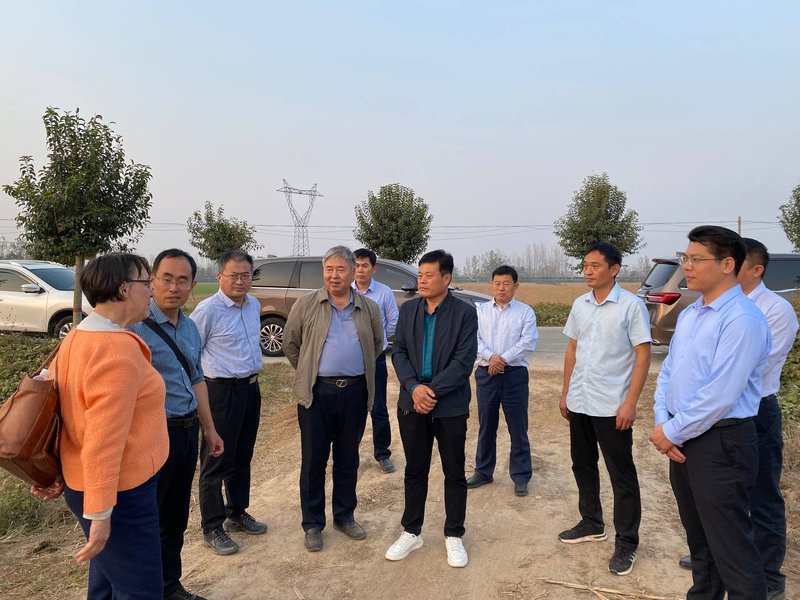
During the experiment, a machinery technique for making suitable ridges for mushroom cultivation was developed, in order to reduce the labour power and make the cultivation system more efficient.
On the second day of the trip, the team was hosted by the Henan Academy of Agricultural Sciences (HAAS) in Zhengzhou. After a keynote introduction by the dean of the Foreign Affairs Office and the director of the Institute of Plant Nutrition and Resource Environment, prof. dr. Andrea Knierim gave a lecture for 50 people about the ‘Advisory services’ and trans4num Europe project.
In the afternoon session, the coordinators met the HAAS research team, which gave a presentation on ‘Research and Application of Straw Fertilizing Technology for High-value Utilization of Fertilized Soil’ and potential areas of cooperation with trans4num Europe were discussed.
The HAAS team has experience in the fields of Agronomy, Greenhouse gas emission modelling, LCA and nutrient management.
This trip was very rich in insights on NBS practice and related research in the field of nutrient management, but also with respect to particularly tasty food, excellent fast trains and last but not least charming hosts!
On 1st November, the kick-off meeting of trans4num-China started with the official opening session, including a welcoming speech of the deputy director of CAAS, and continued with the keynote speeches of some guests from the Ministry of Agriculture and Rural Affairs, Ministry of Science and Technology, EU-Delegation in China and inner Mongolia Academy of Agriculture.
Afterwards, Xiangping Jia (project leader) gave a presentation about the general background, objectives, and framework of the trans4num-China project. Afterward, prof. dr. Andrea Knierim presented the design, main components, and main involved partners of trans4num. Dr. Qirui Li gave an insight into the NBS sites and their main practices, as well as the organizational work done in the first year of the project. The morning session ended with a round table discussion with some remarks from different experts and political decision-makers in China's Agricultural sector.
In the afternoon session, the external guests left the meeting, and from the EU consortium, 16 participants (from 9 organizations) attended the meeting online. Seven Chinese partners presented their tasks and sub-projects, methodology, and the potential cooperation with counter partners from the European consortium.
After that, an introduction of the European consortium and their working packages and tasks in trans4num followed. Parallel discussions started, where EU partners were asked to collect impressions and insights concerning their experiences in the first year of the project and shared them with the Chinese partners, while the Chinese partners discussed their key interests in collaborating with EU consortium or specific work packages (WPs) and debated the challenges and concerns they perceive for the China consortium.
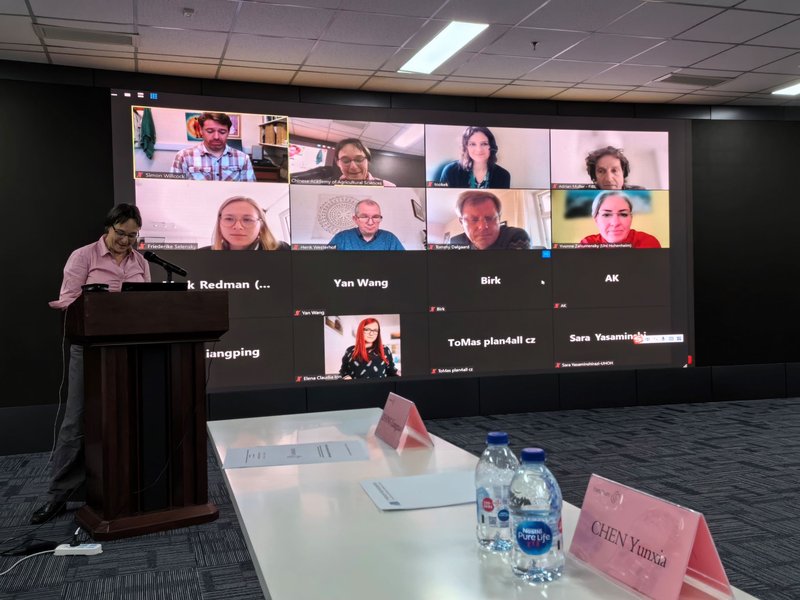
The evening finished not only with many impressions and input but also with networking and, for sure, delicious Chinese food with the partners.
After the kick-off meeting, EU coordinator team continued with meeting the Chinese partners, either individually or as a group of partners who are working in similar fields.
On 02.11, a joint meeting at CAU with partners from CAAS, HAAS, CAU, and SWU was held. With reviewing the WPs and tasks defined in trans4num-EU, we checked the extent of similarities of the tasks of the two consortiums and briefly discussed the potential work area with EU partners.
After being informed that the Chinese consortium of econutri (the sister project of trans4num) has also been funded, on 3 November, we visited the project coordinator at CAU.
After presenting their research framework and listening to their detailed planning, we are very optimistic about seeing a synergy between trans4num and econutri in the future.
EU project team met also with trans4num partners from Tsinghua University (THU), Institute of Journalism and Communication. This partner will be responsible not only for hackathons but also for the investigation of public perception and farmers' understanding of the concept of sustainable agriculture in China, as well as media analysis on the promotion of that in both China and Europe.
The China trip continued with another short weekend trip to Yangxin County in Shandong province. There, the coordination team met a successful entrepreneur and two local farmers supported by the entrepreneurs services such as training, supplying seeds, fertilizer, machinery, and harvesting. Additionally, this company conducts various experiments to determine the best practices for the farming system in different provinces.
On the second day of the Shandong trip, Prof. Dr. Andrea Knierim met with the local county governor and small- and large-scale farmers of this county to get a deeper insight into agriculture in China.
On November 6, Prof. Dr. Andrea Knierim gave a lecture titled ‘Changes and Continuities in Agricultural Advisory Work. A European Perspective’ for the professors and junior researchers at the Agricultural Information Institute of CAAS. In the afternoon, together with Xiangping Jia, the team had a very rich discussion on the current concerns as well as further steps and planning for trans4num China and Europe. On November 8, the fruitful trip of the trans4num Coordination team to China ended.
We look forward to meeting our Chinese partners and exploring China in a bigger group during the EU consortium trip.
Make sure to follow trans4num project to find out more about the EU-China collaboration and the results of the NBS sites.

